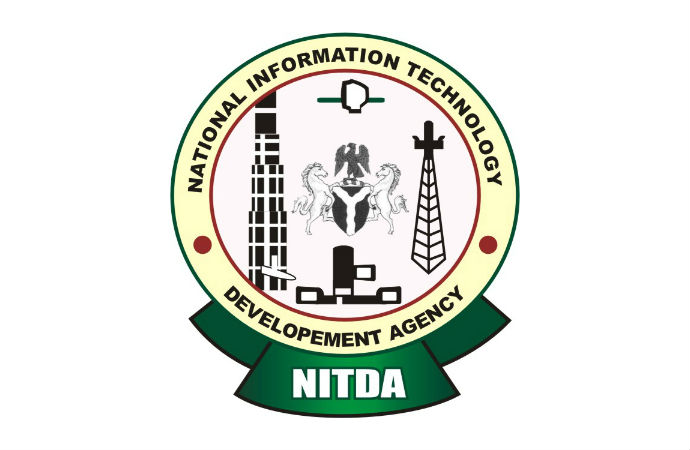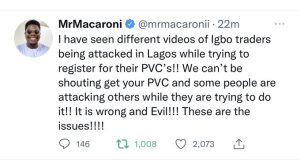In a rather dramatic twist last week, the Federal government gave online interactive platforms such as Twitter, WhatsApp, Facebook, Instagram, TikTok and others 24 hours deadline to remove, pull down or disable, block access to all pornography on their platforms which include full or partial nudity, sexual acts or content that exposed a person’s private parts targeted to corrupt, harass, intimidate or to bring others into disrepute. These platforms were also asked to exercise due diligence in order to ensure that henceforth no pornographic material or any such offensive materials is uploaded to their platforms. The Code of Practice containing the prohibition of pornographic materials was developed by the National Information Technology Development Agency (NITDA) in collaboration with the Nigerian Communication Commission (NCC) and the National Broadcasting Commission (NBC) with inputs from Twitter, Facebook, WhatsApp, Instagram, Google and TikTok.
This is praiseworthy. I remember attending a stakeholders’ meeting at the NCC headquarters in Abuja three years ago to deliberate on the offensive materials uploaded on the Internet. In that meeting, the NCC assured all of us attendees that it was poised to eliminate pornography on the Internet and social media spaces in Nigeria. Also I remember having a meeting with the NBC Monitoring Team at the NBC headquarters in Abuja last year for the same purpose. Also in that meeting, the NBC Monitoring Team did not mince words in assuring me that the NBC was working hard to rid the TV in Nigeria of sexual and pornographic materials. It is gladdening that both the NCC and NBC are finally living up to their promises and now tackling porn and eroticism on the Internet and social media.
Pornography is a bilion dollar business. Movies, musical videos, Twitter, WhatsApp, Facebook, Instagram, TikTok are fraught with erotic and sleazy scenes and immoral sexual cues. Nudity is promoted and dished out in spades. The minds of the younger generation are gradually becoming attuned to thinking that a woman’s body is an object that has no other value except sexual value. Explicit commercial pornography, which appeals to the prurient interest in sex and eroticism, damages a country’s moral ecology in an analogous way in which oil pollutant damages a country’s ecology and environment. A report recently released in the US says that adult pornography contributes to child sexual exploitation. The report also shows that men act out with child prostitutes what they view in internet adult pornography and that pimps use internet adult pornography to instruct child prostitutes.
In case you don’t know, porn has destroyed many marriages. A husband or wife who is a porn addict is unlikely to be faithful to his or her spouse in marriage. You may be aware that the TV Reality Show BBNaija is classified as porn. In December 2007 the NBC slammed a gargantuan fine of N10 million on Multi-choice Nigeria for airing BBNaija containing pornographic scenes (If you are in doubt of this, just google “Multi-choice fined for showing BBNaija porn in 2007”). Earlier, Multichoice had been dragged before the House of Representatives Committee for Information and National Orientation. After deliberating on the pornographic content of BBNaija, members of the Committee unanimously agreed to punish Multichoice for violating the NBC laws. Officials of Multichoice pleaded for leniency. The then MNET tendered an apology to Nigerians for showing pornography. Heads rolled at MNET. Some MNET staffers have been fired. MNET’s operation director, Mr. Joseph Hunda, was quoted as saying that he regretted the pornography because MNET is supposed to be protecting the image of Nigeria.
The most frightening aspect of porn addiction is that the greater majority of viewers and recipients of porn debauchery are children. Times have changed. We have lost the control of our children. We are experiencing online child terrorism. Most Nigerian children now watch porn online or on their mobile phones. With their eyes glued to their smartphones, many children nowadays can hardly tell the difference between truth and illusion. They can hardly differentiate between the real-world and imaginary world of the internet and social media. The high incidence of rape and child sexual molestation in Nigeria are traceable to pornography. As I earlier said, times have changed. Parenting is failing or has failed in Nigeria. Workism-the adoption of professional work as one’s highest value-is taking a big toll on Nigerian families. Engrossed in the hustle and bustle of urban life in order to earn enough money to pay school fees and fend for their children, most parents in urban areas have little or no time to look after their children. The consequences of this neglect have been devastating. One major consequence of this shirking of parental responsibility is the increase in child pornography. Armed with their respective mobile phones, most children are now porn addicts. Aside from child porn, child LGTB culture is gaining ground in Nigeria. Disney and other morally-bankrupt agents of the West are now promoting gay movies, gay cartoons and LGTB ideology among under-6 children in Africa (Nigeria inclusive) in order to damage the character of these kids before they grow up. Is this not criminal? Of course, it is. I remember travelling to Abuja and getting the National Film and Video Census Board (NFVCB) to stop a gay film which had been advertised and scheduled to be shown at a popular Abuja Cinema Hall.
So the latest initiative of the authorities to ban porn on Twitter, Facebook, WhatsApp, Instagram, Google and Tik Tok, as I earlier said, is praiseworthy. But beyond placing a mere paper ban porn on Twitter, Facebook, WhatsApp, Instagram, Google and Tik Tok, the authorities should figure out effective ways of getting Twitter, Facebook, WhatsApp, Instagram, Google and Tik Tok to remove or pull down porn from their platforms. Nigeria’s problem is not paucity of laws: it is enforcement of the existing laws or obedience to the existing laws. For example, the 24 hours given to Twitter, Facebook, WhtsApp, Instagram, Google and Tik Tok to yank off the porn on their respective platforms had since last week elapsed and no compliance yet from Twitter, Facebook, WhatsApp, Instagram, Google and Tik Tok. The BBNaija porn was banned in Nigeria as far back as 2007 yet the porn is still being aired today on almost all the media and platforms in Nigeria including Nigerian TV. Nigeria remains one of the few countries in the world whose soil serves as a dumping ground for all sorts of fakeries and hazardous things. The Nigerian market is littered with adulterated drugs, pesticides, obsolete computers, hazardous already-used UK mobile phones, fake batteries, fake tyres, fake biros, fake building materials, fake “pure” water and so forth. I have given the NCC the following advice in the past and I feel obliged today to give them the same advice if they would listen to me. Borrowing the Internet Censorship practices in the United Kingdom, Russia, India, China and other countries, the NCC should commence the Internet Protocol (IP) blocking, Domain Name Servers (DNS) filtering and redirection, Uniform Resource Locator (URL) filtering, Packet filtering, Man-in-the middle attack, Transmission Control Protocol (TCP) reset in Nigeria. As done abroad, the NCC should create censorship watchdogs. Such watchdogs, comprising, maybe NGOs or members of civil society, shall be responsible for alerting the NCC when porn or any other objectionable content is intercepted. The watch dogs should be in charge of preparing a comprehensive list of IP addresses to be blocked or blacklisted for non-compliance with NCC directives. As practiced in most countries now, the NCC should get the ISPs to filter away porn from the internet as well as information on the Internet promoting unlawful conducts such as economic fraud or encouraging children to commit suicide or acts endangering their lives or information inciting ethnic violence, or incitement political secession or promoting drug addiction, bestiality, homosexual and lesbian lifestyles or information promoting terrorism or banditry or kidnapping. The citizens should be encouraged to send grievances and complaints to the NCC on the aforesaid crimes.
In essence, the NCC should adopt the internet filtering methods practised in other countries. For example, former British Prime Minister David Cameron had marked out concrete ways to block access to online pornography in the United Kingdom. Cameron had repeatedly warned the British public that internet pornography is capable of “corroding childhood”. “In a really big step forward, all the Internet Service Providers (ISPs) have re-wired their technology so that once your filters are installed, they cover any device connected to your home internet account”, said Cameron. In copying the good example of the United Kingdom in this matter, all Nigeria ISPs should be made to rewire their technology so that once filters are installed, it will cover any device connected to home internet accounts. Kamlesh Vaswani, the lawyer who pushed for the ban on internet sites hosting pornography in India, said that online pornography has a direct co-relation with crimes against children and women. According to him, “watching porn itself puts the country’s security in danger, encourages violent acts, unacceptable behaviour in society, exploitation of children and lowers the dignity of women”. China’s internet filtering methods are very wide and more extensive than in other countries. They include Internet Protocol (IP) blocking, Domain Name Servers (DNS) filtering and redirection, Uniform Resource Locator (URL) filtering, Packet filtering, Man-in-the middle attack, Transmission Control Protocol (TCP). In Russia, an internet user does not browse anything. Russia has what is called the blacklist laws. For example, in July 2012 the State of Duma enacted a law that calls for blacklisting of certain internet sites especially sites that promote drug addiction, porn addiction, suicide advocacy or sites with harmful contents against children.
Many lawsuits relating to colossal damage done to children online have arisen in the United States in recent years. One of such lawsuits is the famous case involving a teenager from California called Justin Berry. At 13, Justin Berry thought the internet was the best place for him to make friends but he ended up becoming a drug addict and sex addict that led to the ruin of his life. Testifying before members of the Congressional Panel, Justin said that they were many kids like him in the US who unknown to their parents had been ruined by online drug and sex addiction. That is why in many States in the US today it is illegal to post or text suggestive or sexually explicit images to minors. In fact, child pornography charges are being brought against internet users in the U.S. Also charges are brought against people in the U.S. for luring children into the online activity known as “sexting”. It is said that 1 out of every 5 children in the US has had sexual solicitation from the internet chat room. This explains why most U.S. parents are now being encouraged to be proactive in supervising how their children use the Internet.
I believe Nigeria can take the same safety measure as the U.S. It is sad that despite the fact that child pornography is outlawed in Nigeria, Nigerian minors are still having unimpeded access to pornography. This should stop. Nigerian parents are in a hurry to purchase mobile phones for their kids including kids in junior secondary school forgetting that they are exposing their kids to potential dangers. Nigerian parents should complement the work of NCC by supervising that their children stay away from browsing pornography on their phones.

















